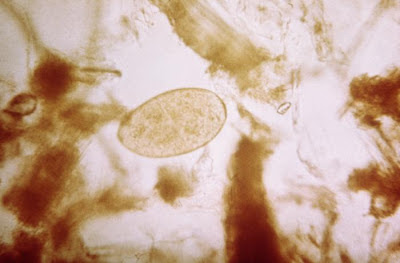Two people from Jammu and Kashmir State in northern India have been diagnosed with parasitic trematode disease, fascioliasis, according to a Rising Kashmir report this week.

According to the report, the first case was a young male patient from the Sunderwani Pakherpora area of Budgam and was referred to Gastroenterology unit of Shere-i-Kashmir Institute of Medical Sciences (SKIMS) Soura as a liver cancer patient. The patient was treated endoscopically (ERCP) by removing hundreds of live liver flukes from the bile duct.
Prior to this, he was seen by several doctors and treated for other diseases.
10 Most Important Infectious Disease Stories of 2017: Outbreak News Today
The second patient was a 20-year-old woman from Handwara. She also had difficulty being properly diagnosed prior to visiting SKIMS. The fascioliasis disease affected the girl after a lot of cattle died in their village and two in their home in the past.
The head department of Gastroenterology SKIMS, Dr GN Yattoo told Rising Kashmir that they believed that the disease did not exist in Kashmir.
Fascioliasis is a foodborne infection caused by liver flukes Fasciola hepatica and F. gigantica found primarily in sheep and cattle-raising countries. Transmission occurs from herbivores to humans via ingestion of cysts (metacercariae) present on water plants (classically watercress) or in contaminated water.
READ MORE about Fasciola hepatica
Fascioliasis affects some of the world’s poorest communities. In the developed world, cases are mainly described in returned travelers, but infection may occur locally through ingestion of imported or locally grown vegetables.
Interviews about other parasites:
- Parasites 101: Ascaris lumbricoides
- Paragonimus: A look at this parasitic lung fluke
- Clonorchis sinensis: The Chinese liver fluke
- Acanthamoeba: A rare and potentially blinding parasite
- Parasites 101: Whipworm
- Dientamoeba fragilis: ‘The unflagellated human flagellate’
- Lymphatic filariasis in Nigeria: The battle against the disfiguring parasitic disease
- Parasites 101: Pinworms
- Parasites 101: Entamoeba histolytica
- Diphyllobothrium: The largest known tapeworms that can infect people
- Parasites 101: Swimmer’s itch
- Parasites 101: Cyclospora
- Coyote tapeworm in Alberta: 5th human case reported
- Raccoon roundworm: The rare and potentially lethal zoonosis
- Outbreak News Radio: Baylisascaris procyonis (raccoon roundworm)
- Autoinfection and Hyperinfection With Strongyloides Stercoralis
- A Potentially Fatal Parasite First Seen in the Philippines



